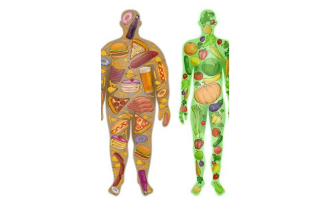8 top winter diet tips: Maintain good health in winter with the following tips

The coldest season is now knocking on the door. This season you should take care of your health. Winter comes with flu, cold, cough, and some people face weight gain. In this season, people celebrate Xmas, New Year, and many other festivals with their friends and family. Therefore, maintaining a healthy food habit during this time is a little difficult. As a result, people may gain weight, feel low, or even suffer from viral infections. Therefore, you should practice good food habits and be concerned about physical activities. It can help you be energetic, healthy, and boost your immune system which helps you to protect yourself from viral infections. In this article, I share eight tips that can help you manage your good health easily in winter.
Enjoy seasonal vegetables:
During winter, there are different types of fresh vegetables available in the market, especially, leafy vegetables:
Spinach
Lettuce
Cabbage
Broccoli
Fenugreek leaves,
Radish green, etc. As we all know vegetables are good sources of various essential nutrients like fiber, Vitamin A, Vitamin K, Vitamin C, Iron, Calcium, Magnesium, etc. Vegetables are also high in fiber and low in calories. Therefore, vegetables help you to boost your immune system as well as help to lose your body weight. The presence of water in vegetables also helps to keep hydrated. You can consume vegetables such as curry, as a smoothie, as a salad, or add them as a staff into parathas.
Nourish yourself with fruits:
Several types of fruits are available in the market especially citrus fruits in winter:
Orange
Grapefruits
Strawberry
Apple
Pomegranate
Amla
Cherries
Dates
Star fruits (Kamranga)
Pear
Kiwi fruits,
Indian jujube (Kul) etc. If you want to be healthy in this season, you must include these fruits in your diet regularly. Fruits are the powerhouse of essential nutrients like Vitamin A, vitamin C, B vitamins, potassium, copper, zinc, phosphorus, iron, magnesium, etc. An excellent source of fiber and antioxidants. Fruits help to improve the digestive system, immune system, and heart health, good for maintaining skin health, and weight management. Therefore, this winter, if you wish to be nourished then consume fruits regularly.
Stay hydrated:
In winter, dehydration is a very common issue. Just because we feel less thirsty, the amount of drinking water becomes low, and we become dehydrated. The human body is made up of 55-60 % water elements. Therefore, to become a healthy person, keeping hydrated is very important.
In winter, our water consumption level becomes low, but urination, respiration, and perspiration in our bodies go normal. As a result, the water level in our body decreases, and the body becomes dehydrated. Less water consumption also causes dryness of the skin, yellowish urination, constipation, headache, lethargy, etc. Therefore, make sure that you drink enough water regularly.
Enjoy detox drink:
In winter if you start your day with a detox drink that can help you to feel more energetic and hydrated as well as good for body metabolism. Our bodies have their own process of detoxification, but detox drinks help to support the process. The drinks you should add to your daily meal plan are;
Jeera or cumin water:
Cuminaldehyde, the main component of the essential oil extracted from cumin seeds, helps to improve the digestive system, prevents gas formation, improves bowel movement, and provides relief from stomach issues. It can also act as a fat burner which helps in weight loss. Regular consumption of cumin water also helps to manage blood glucose levels.
Fenugreek water:
Fenugreek seeds are rich in fiber, iron, magnesium, manganese, etc. Regular consumption of this drink helps to control blood glucose levels, improve digestion, and, due to its anti-inflammatory properties, may reduce inflammation.
Lemon-ginger water:
A glass of warm lemon-ginger water can be refreshing, especially in winter. The drink is also good for your digestive system, boosts your immune system, promotes bowel movement, skin nourishment, weight management, and helps prevent colds and coughs.
Herbal Tea:
Starting a winter morning with a cup of tea is the best option for any tea lover. Make sure it is herbal tea like ginger-tulsi tea, mint tea, cinnamon tea, peppermint tea, hibiscus tea, etc. It is not only for a pleasant start to a day but also helps to boost immunity, good for heart health, helps to control stress levels, protects from colds & coughs, helps in weight management, and controls blood glucose levels. Therefore, this winter, you can start your day with a cup of herbal tea, which can give you refreshment with health benefits.
Choose good snacks:
Many festivals, events, and parties are happening throughout the season. Due to this, consumption levels of street foods, fried foods, and junk food are becoming high, especially during snack time. You must be aware of this. You should choose a good snack for yourself. It is good to carry a small box of mixed dry fruits. Dry fruits are rich in fat, which helps to keep you warm naturally. It also helps to regulate the cholesterol level. You can also add roasted makhana, poha, roasted chana, etc. as your snack items. All of these are rich in fiber and other nutrients that help you to feel satiety for a long time, which helps you control yourself from overeating as well as nutritionally beneficial. Therefore, choose good foods for your snacks instead of fast foods.
Vitamin D deficiency:
As we all know, we get most of the vitamin D from sunlight exposure. In winter the sunlight is not exposed properly due to fog or bad weather in many places around the world. Therefore, people are not getting enough sunlight to meet the demand for vitamin D. As a result, they may suffer from fatigue, mood swings, depression, bone pain, muscle cramps, etc. Vitamin D deficiency in winter is very common. Therefore, you should be concerned about it and take vitamin D supplements regularly as per instruction. Along with this, you can also add vitamin D-rich foods to your diet like Fatty fish (like Salmon, Mackerel, etc.), egg yolk, and vitamin D-fortified foods like breakfast cereals, milk, etc. (you should check the level before you purchase).
Do a proper healthy breakfast:
A proper healthy breakfast is always recommended. In winter, it is especially needed because our appetite level becomes high in winter, so if you do not eat properly, you can feel cold and have a good chance of overeating. Ensure your meal is rich in protein which helps you to feel fulfilled for a long time.
In winter, our digestive system becomes weak. Therefore, you must choose easily digestible food. Try to avoid, processed foods, and cold foods in winter. Always consume warm foods that help you to digest easily.
Stay active:
Due to cold weather, it is a big challenge for many people to go for a workout. In winter, many people try to skip exercise. This is not a good idea. It can cause weight gain, gas formation, bloating, lethargy, etc. Therefore, you must continue your physical activities for at least 3 to 4 days a week for 35 – 40 min. Initially, you may feel low to start exercise but if you take the initiative, it can feel you fresh, charming, and energetic throughout the day.
Bottom line:
Winter is the time when people, especially children, and older people get affected by cold, cough and flu. In extreme conditions they may even suffer from pneumonia. Also, during winter, our digestive system slows down which may cause of gas formation, stomach upset, and bloating. Therefore, you should choose easily digestible foods as well as nutritious foods that help in digestion, meet nutritional demands, help in weight management, and help to support your immune system in winter.












0 Comments